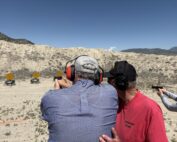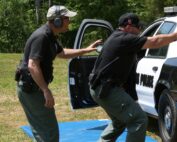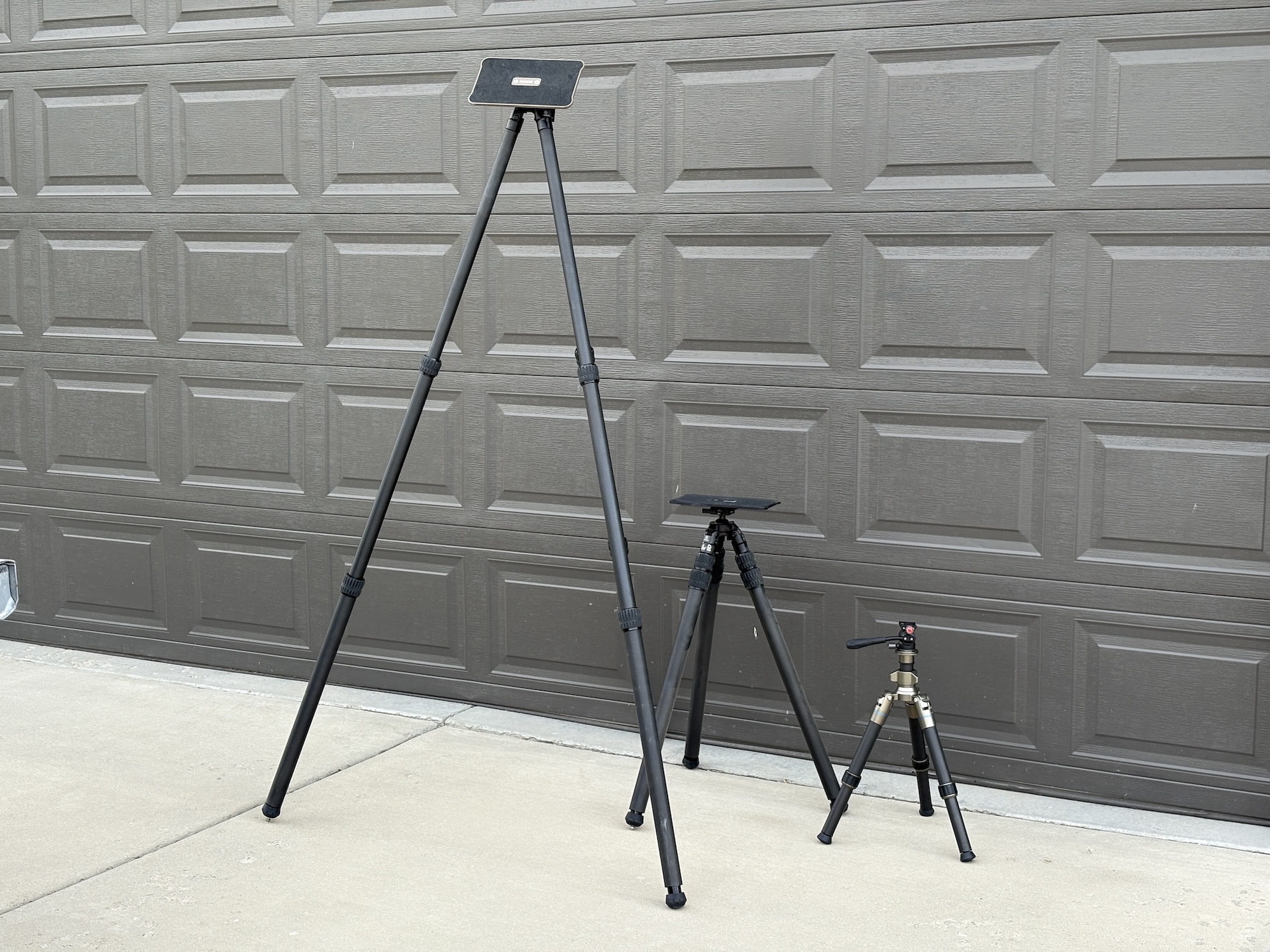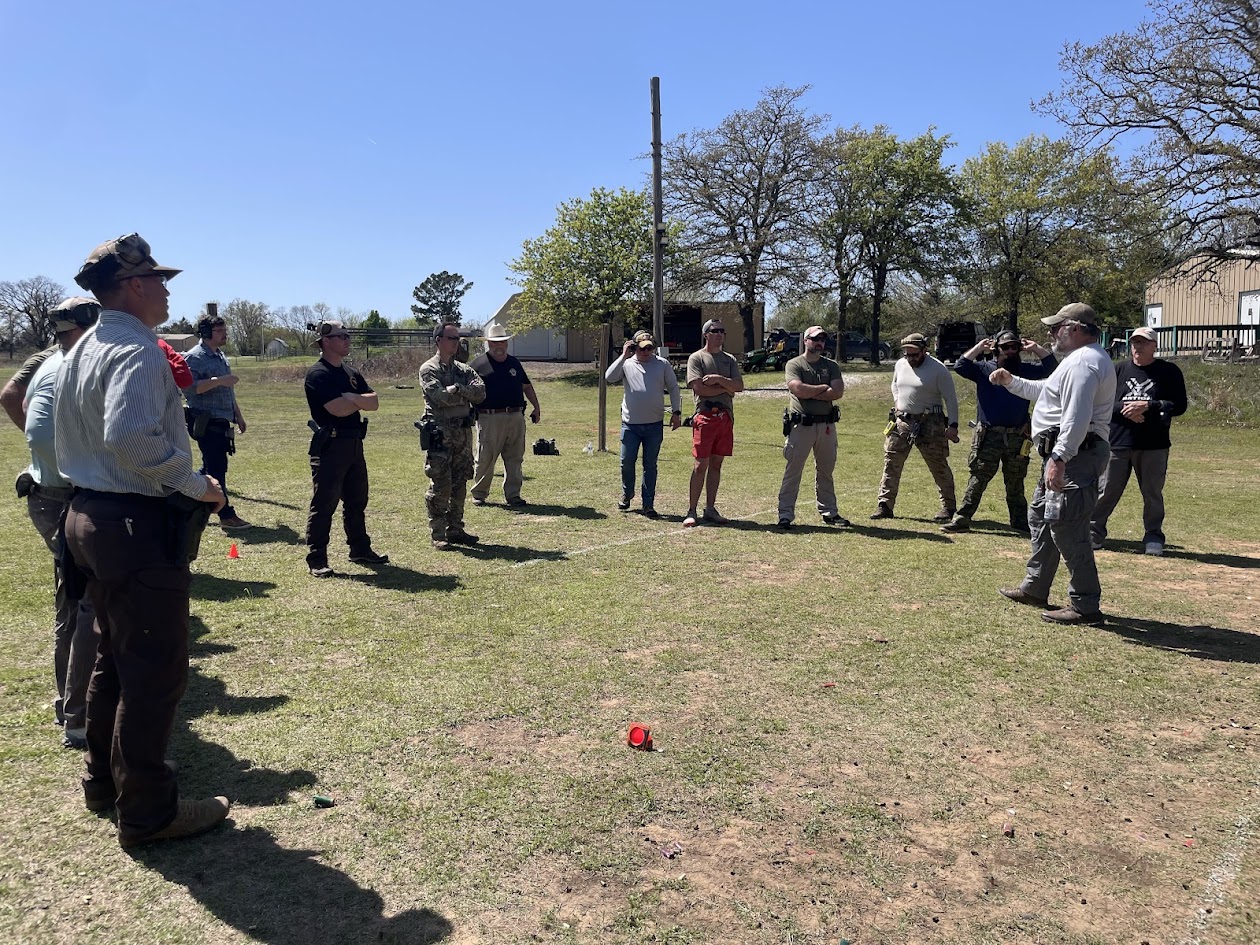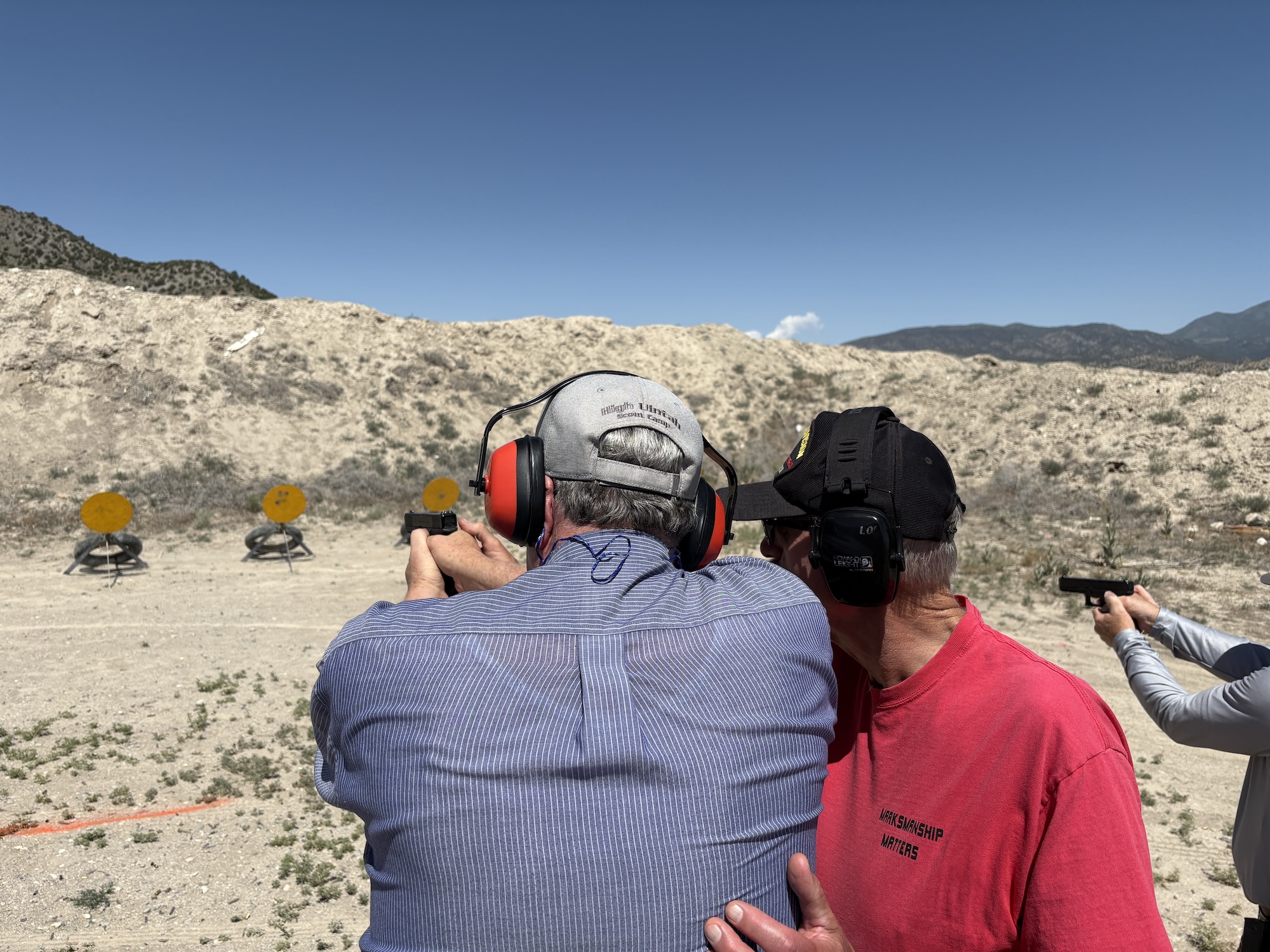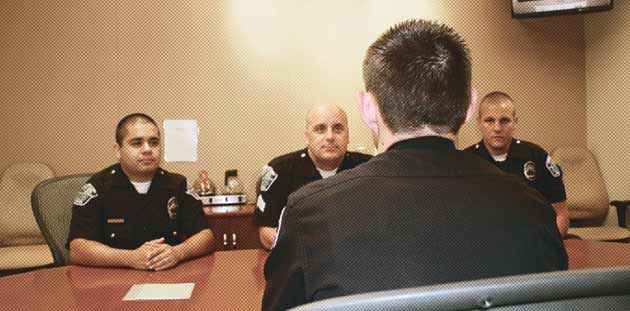
oral-big
Silver Bullets And Actual Personality.
If there’s one thing that scares the bejesus out of most cops, it’s the oral interview. Whether angling for a position on the narco team or just grabbing for that next rung on the promotion ladder, the oral interview often has a way of reducing even the best of cops into blathering blobs of semi-coherent goo. The reason is simple: the oral interview is a combo-pack containing two of the worst fears on the law enforcement hit parade of horrors — public speaking and looking bad in front of your peers.
There are no magic tricks to doing well in these situations; it’s really just a question of effort and proper preparation. While there are literally hundreds of articles, books and professional trainers covering the oral interview topic in detail, these are my top 10 tips for killing the oral.
1. Life’s Not Fair
Orals are a competition. Whoever does the best is usually going to get the job. It doesn’t matter if the highest score on the oral examination belongs to some weak-kneed limp noodle who couldn’t lead a gaggle of girl scouts out of a wet paper bag. If his oral interview skills are better than yours, the next thing you might be calling him is Detective, Sergeant or even Lieutenant. It might piss you off, but that’s just the way the game is played. It means you need to get serious about your own game. Officers who would sooner cut off their arm than execute a tactical plan without prior planning think nothing of marching into an oral board with little or no preparation, and only the barest mental glimmer of how they hope to accomplish their goals. This is a losing strategy. You have to think of an oral interview like you’d train to run a marathon. Start early, plan wisely, and train, train — train.
2. Give Yourself Time
Don’t wait until a week before the oral interview to start getting ready. To do well you need to research, plan and practice. That means you need all the time you can get — the more of it, the better. What time gives you is an opportunity to prepare yourself in an incremental fashion without the added pressure of a looming deadline. A little work each day is much more doable, and a lot less stressful, than a lot of work in a few days.
3. Do Your Research
Basic research is as fundamental to success as showing up for the interview itself. Whatever you’re testing for, there are reams of information available for the asking.
Everything from the job-opening announcement itself to the Internet offers you information. Without ever leaving your home, you have access to articles, blogs, websites, books and even videos covering everything from potential oral interview questions to body language, speaking tips, policing theory, leadership styles or anything else related to your interview you might deem relevant. Gather the information as you would for any project. This will be the foundational study material you use to begin preparing.
Don’t be afraid to take a few “field trips” to help boost your preparation package. Depending on what your testing for, take a tour of the regional gang, auto theft or narcotics office; interview a filing DA about what they look for in a good case filing; talk to a judge about trial testimony; go on ride-alongs or participate in a training day with specialized units (K-9, SWAT, Defensive Tactics Team, etc.). These small investments in time and effort often pay big dividends with boards.
4. You Need Silver Bullets
It’s no easy task to relay the depth and breadth of your experience in the measly 30 minutes you’re provided in the typical board. If you go in hoping you’ll pull it off, you can plan on watching someone else walk away with your promotion. Start out by making a list of everything you’ve ever done you might consider noteworthy. It may be a great arrest or investigation you led or took part in, awards you have won, leadership billets you have filled or unique experiences (both in and out of law enforcement) demonstrating elements of your character (courage, initiative, resourcefulness, compassion, etc.). It might be something about you (speak multiple languages, martial arts or SWAT experience, marathon runner, coach at the local high school, etc.) that makes you unique or noteworthy.
This is not the time to be shy or coy. If you won awards for bravery, were officer of the year, or work at the soup kitchen every weekend, put it down. What you want is a number of personal examples across a wide spectrum, available at your fingertips, to help breathe life into your oral and to demonstrate your personal experiences with the key concepts you will be discussing. These “silver bullets” are the big-ticket items you really want the board to know about you. They can be used in the opening, closing or “example” phase of your answer. By writing down everything you can think of, you’re certain to come up with a list you can winnow down to about the best dozen or so. This list of silver bullets can then be pre-loaded into your oral interview preparation, ready to fire at the right moment during the interview.
5. Leave No Ego Un-stroked!
No, I don’t mean you need to be some pathetic ass-kisser. But let’s face it: this job comes with a lot of type-A personalities, and some pretty large egos to match. If it’s an inside oral, then these are the folks who are going to be sitting on your panel. Go visit the narco, gang or detective bureau you are looking to join. Talk to everyone you can, from the top to the bottom, and ask them about the unit, their expectations, past oral questions or anything else they’re willing to share with you. You want to show them you are serious — and interested — in joining their team.
If you’re looking to promote, meet with everyone you can of that rank, or above, and get their take on what it’s like to be in their position, as well as the day-to-day challenges they face. Solicit every bit of advice they’re willing to give you. Not only will you learn important information almost certain to assist in your oral, you’re showing the people involved a bit of respect.
Some folks may scoff at this piece of advice, but they do so at their own peril. It’s been my experience nearly everyone is flattered to be asked for advice on orals, and most are more than happy to help. Leaving this step out, especially on smaller departments, can sometimes leave the involved parties feeling miffed. Why risk alienating someone who may end up on, or influencing, your oral board, when only a little effort can yield such positive results?
6. If You Fail To Plan …
Then you’ll plan to fail. When you have all the research material collected you think you need, you’re going to have to start planning your responses. This is the gut work that takes the most time and is probably the most tedious. With all of the research you’ve done, it’s time to start putting it together into useful material. There are certain universal elements of oral boards. Preparing for an opening and closing statement, anticipating standard questions about the job or rank you aspire to, researching potential questions and answers about policy and procedure, working through possible situational questions and developing a theme to your responses are all necessary evils.
The difference between an unfocused oral and one with a theme can be measurable. A theme is simply a way of projecting a pre-selected image of you to the oral panel. If you are young in your career without a lot of experience, your theme might revolve around enthusiasm, innovative thinking, high productivity, fresh ideas and a youthful willingness to sacrifice all your time and effort for the job.
If you’re older and more experienced, your theme might be just that. You have the skill set, savvy and experience necessary to hit the ground running. Themes are woven through each of your answers so the panel is left with a constant reminder of what you bring to the table.
Whether you try to memorize your answers or just like using bullet points, what I’ve found to be successful is to develop the research material until you have lists of all the possible questions to anticipate, a list of all of your possible responses organized by topics (I like bullet points) and a list of all your silver bullets. This ensures you have a written format to work from, and allows someone else to question, and prompt you, when you get to the rehearsal stage.
7. Have A Personality
Personality will not carry you to a win all by itself, but it sure won’t hurt. A weird thing seems to happen when folks walk into an oral interview. As they enter into the room, the life just gets sucked right out of them. What was once a witty, conversational, intelligent human being suddenly becomes a soulless, joyless, robotic drone, obviously regurgitating pre-programmed responses in a boringly predictable and monotone manner. Can you feel the oral panel yawning?
If an oral panel likes you, they will typically find it much easier to give you a good score. This means you need to speak well and to build a rapport. And to do this, you have to act human! There’s a fine line between being enthusiastic and being a clown, but I tend to err on the side of putting it all out there. Folks often forget to show enthusiasm and motivation, to express how much they just plain love the job, or to put a personal piece of themselves out there to show the board who they really are.
How you say things can often be as important as what you say. There are hundreds of books on speaking well, read some of them and practice things like facial expressions, inflection or verbal pauses. It will do wonders for your presentation.
8. It’s Not The Question …
It’s the answer that’s important. Formatting your answer is one of my top two tips when it comes to the oral interview. The vast majority of subjects who go before an oral board simply answer the questions asked. It sounds strange, but simply answering the question is not enough to excel. Think of it like this: everyone will normally get asked the exact same questions, and most will give very similar answers. Take for example a standard question like, “What character trait do you think is most important for a sergeant to have and why?” If there are ten applicants, you will likely get a variety of answers ranging from courage, to integrity, honesty, resourcefulness or being a good listener, to name just a few.
Each answer will be backed up with a few sentences about why the applicant thinks that particular trait is the most important. Since there is no “right” answer to this question, each response is acceptable. And that’s where the response will end most of the time. Question asked, question answered. No life, no spark, no elaboration, no demonstration of a deeper understanding of the question or how it relates to the position you’re applying for, nothing special to separate you from the rest of the pack.
I like to break my responses up into the Answer Phase, the Building Phase and the Example or “Silver Bullet” Phase:
Answer Phase: This is your basic response to the question asked. That answer always has to bring you into the equation. Answer in the first person as if you are the detective, sergeant, lieutenant they are talking about, “My best character trait as a sergeant is …” or “As a detective my ability to …”. You’d be surprised how many speakers fail to put themselves verbally into the position they are testing for and say, “I think a sergeant should have …”.
Building Phase: What you’re selling in an oral is yourself. Whatever answer you give, you want to explain the thinking process you used to arrive at that answer. Make sure your thinking is from the viewpoint or perspective of the rank or position you are seeking. From there, expand your answer to show its relationship to current events, policy and procedure, leadership, changes at your department, challenges you might face in the new position or rank, etc. The point is, go beyond the simple answer and show you understand the larger implications.
Example/Silver Bullet Phase: This is the point where you demonstrate your personal experience with the topic under discussion by giving a real-life example. If you are talking about character traits, then you better have a good example of how you have demonstrated the trait you selected. This is where that list of silver bullets is so important. You already know what you want to tell the board about yourself, you just have to squeeze it in!
That can be tricky sometimes since you never know exactly what questions you’re going to be asked. It may require a bit of improvisation to drag your silver bullet into the answer. Don’t wait for the perfect question before you throw in your silver bullets. With it being likely that only 6-10 questions will be asked, you have to drag your silver bullets into the interview, kicking and screaming if that’s what it takes. As long as you can draw even a slight correlation between your silver bullet and the topic discussed — go for it.
9. It’s Not enough that You Know It!
This tip is right up there at the top with formatting. If you hope to do well, you have to rehearse out loud, and in front of others. I cannot stress how important this part of the preparation is. We’ve all seen those situations where we know someone who is a well-respected and talented cop, with years of experience and knowledge. Then, despite their obvious abilities, it’s almost a cliché these candidates often find themselves losing out to what many may consider “lesser candidates.”
It’s not that they don’t know the material; it’s just they often cannot verbally convey their qualifications and expertise to the board. Let’s face it, an oral interview means you have to speak out loud! Many departments, at least when it comes to supervisory promotion, bring in panel members from outside departments to ensure fairness in the process. It means they don’t know you, so you have to tell them everything you want them to know about you. You receive no credit for what you cannot convey verbally.
Typically, the problem is what sounds so smooth and elegant in your head doesn’t quite make it past your lips. Most people rehearse by speaking silently to themselves. If they do practice out loud, it’s often done in a mumble, non-focused or haphazard fashion. This will not do. You have to rehearse as if you were in the oral itself. Give your responses out loud and with the same intensity as you would during the actual interview.
Practice the same inflections and work on eye contact and rapport building. When you make a mistake, don’t curse and stop. Work through your verbal stumbles as you would have to in real life. This will format your brain for the real thing. It’s like any skill you want to master; you need those 10,000 repetitions if you want it to come out smoooooooth.
Once your rehearsals are moving along to a point you think you’ve got the basics down, it’s time to ratchet up the pressure. In order to be truly successful on an oral exam, you have to rehearse in front of other people. Most folks find this the most difficult part of the preparation, and often skip it. Don’t skip this part.
If you’re not ready to go before fellow officers, then start with your husband, wife or even your kids. Give them your list of questions and just have them start asking you them at random. Even there, give your response from the seated position, as you look at them, just as if they were the oral board. It can be extremely uncomfortable, or even embarrassing, but then so can the oral board.
When you’ve mastered your family or friends, it’s time for a really cynical audience — police officers. They are the toughest audience, and also the best, because they’re in the same profession and can smell a lame, insincere or weak answer from two blocks away.
The final step is the mock oral. You can do this anywhere — at work, at home, or even on a park bench. The best way is to get at least three fellow officers and a room set up, as it would be for the oral board.
Explain to your fellow officers, or supervisors if you can get them, what you’re doing and provide them with your list of questions. Encourage them to ask questions of their own or follow up as might be encountered by panel members. Then run it from the beginning just like a real interview.
Have the board take notes as you run through it from start to finish. When you’ve finished with your closing, they can give you their input. Often, departments regularly use the same areas for oral examinations. If you have access to this room, or even a room very much like it, use it as much as possible for your practice and mock orals. Doing realistic rehearsals, or going through a mock oral, in the very room you’re going to actually test in can give you a huge mental boost. This type of reality-based training helps condition your mind and body to perform under the actual conditions it will find itself in. If you’ve been in this room a hundred times reciting your responses and fine tuning your answers, the actual game day will be that much easier for you.
10. Clinch The Deal!
If there was ever a time to let it rip, it’s at the closing. This will be the final impression you leave with the board, and you need it to be a great one! Too often, an officer’s closing is just a poorly-thought-out rehash of what they’ve already said, rather than the exciting, inspiring, well-rehearsed, climactic finale of how and why they are absolutely the best individual for the job.
This is also your last chance to ensure you’ve fired off your best silver bullets. If there was something or some story you were just dying to relate, the closing is your final opportunity to get it in. I personally like a good story and so do most boards. If you can keep them riveted with a personal story or experience really highlighting your character or qualities, then this may be a good way to close. Whatever you do, make sure it is strong, heartfelt so that it leaves your final words lingering in the board members’ minds.
By TI Goetz
View The American COP March 2013 Issue Now!
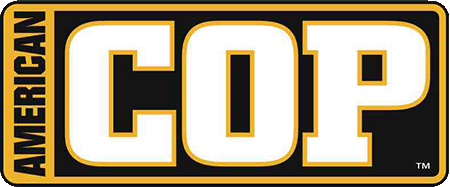

 (No Ratings Yet)
(No Ratings Yet)




